Live Reporting
- There's been a number of reports - thankfully very much a minority - of people coughing at the UK's key workers while claiming to have coronavirus.Today Max Hill QC, the Director of Public Prosecutions for England and Wales, said he was appalled by these reports - and warned that anyone who deliberately coughs at police, NHS staff or shop workers who are keeping the nation going will face the full force of the law.That's because coughing at anyone at all - including the public - in such circumstances is assault. The maximum sentence is six months in jail - or double that if the assault is against an emergency worker carrying out their duties.Mr Hill says: “Let me be very clear: this is a crime and needs to stop. The CPS stands behind emergency and essential workers and will not hesitate to prosecute anybody who threatens them as they go about their vital duties.”England has seen two men convicted - one jailed for crimes including threatening to spit at police officers. The Public Prosecution Service Northern Ireland has also charged a 39-year-old man in similar alleged circumstances.
- The eerie stillness of India's 21-day lockdown is a deceptive exterior to the chaos brewing within.Millions are out of work and without wages; panicky policemen are using force to seal state borders and keep the streets empty; and essential supply trucks are stuck and home deliveries stalled, resulting in shortages and inflation.Despite the huge social and economic cost, India had no choice. Experts say it had to shut down to avoid a worse outcome.But will history's biggest lockdown work?Well, it just may because this chronically underfunded and leaky state can surprise sceptics.India, which largely fails to deliver quality public health and education to its people, excels in "mission mode" with deadline-driven, specific targets - be it eradicating polio or regularly holding trouble-free votes involving hundreds of millions of people.
- Read more about what India's lockdown means here.
- Jerome Powell, the head of America’s central bank said in a rare TV appearance that the US “may well be in recession” and warned that the virus would dictate when it was safe to reopen the economy.It comes as a record 3.28 million Americans filed for unemployment benefits last week as the lockdowns take their toll on the labour market.And this number – as big as it is - doesn’t reflect the full picture. Many people, from the self employed to gig workers to independent contractors, don’t qualify.Plus given the scale of the jobs crisis, there are reports of people having problems making a claim due to websites that keep crashing from too much traffic and phone lines that are jammed.
- In Moscow, pensioners and those with chronic illnesses have been ordered to stay at home from today and in my own neighbourhood there are fewer on the streets. Those out seem to be on their way to food shops and chemists, which is still allowed. There was no sign of anyone policing the new measures. But any over-65s who did try to use the metro as usual this morning found that their free passes had been blocked. Around 63,000 gave it a go, presumably mostly those who are still working.Moscow transport department says there are now 43% fewer passengers on the metro overall, as people increasingly work from home. There was also a sliver of good news: with less car traffic, there’s a 28% reduction in accidents.A much wider shutdown will begin in Moscow on Saturday – for a week, for now – including cafes, restaurants and major parks. That follows President Putin’s announcement of a ‘non-working week’ across the country.The Kremlin today insisted that there is currently "de facto no epidemic" in Russia, with 840 confirmed cases and two deaths, and these measures are about slowing the virus’s spread. Even so, Mr Putin said the country was preparing for every possible scenario.
Video content
- Remember the professor whose kids gatecrashed a BBC interview while he was speaking live on air?Robert Kelly's returned to talk to us about the travails of working from home, as families across the world are having to spend more time at home during the coronavirus pandemic.Prof Kelly and his wife, Jung-a Kim, discuss what family life with children Marion and James is like under lockdown in South Korea.
Video content
- The latest US unemployment numbers were predicted to be catastrophic.The actual total, 3.3 million, turned out to be even worse than expected.The record-breaking amount reflects a US economy put into deep-freeze almost overnight. The government-ordered shutdown hasn’t just shuttered businesses temporarily, it has vapourised the jobs of millions of Americans – many of whom are the particularly vulnerable hourly service workers who live pay cheque to pay cheque.The stock-market freefall and early reports of layoffs foreshadowed Thursday's grim news, prompting Congress to craft its largest-ever aid package, which passed the US Senate Wednesday night. The test now will be whether the multi-trillion-dollar relief will do enough, quickly enough, to stanch the bleeding.What’s clear at this point, however, is the physical disease that is afflicting tens of thousands of Americans and growing will be accompanied by an economic ailment that adversely affects the lives of millions.
- More than three million people in the US applied for unemployment benefit last week, according to labour department figures.The figure breaks the record set in 1982 when unemployment claims hit 695,000.It comes as officials in states across the country close restaurants, bars, cinemas, hotels and gyms. Car firms have halted production and air travel has plummeted.
- Authorities in the Japanese capital want to avoid an "explosion" of new infections. Wednesday saw 41 new cases discovered.The world’s most populous city has so far been spared the draconian measures seen in other major global centres but two days after the 2020 Olympics were postponed Tokyo's governor said the city was at a "critical stage".In other developments around Asia:
- India announced a $22.6bn (£19bn) bailout to help tackle the Covid-19 pandemic Read more about the financial package.
- Malaysia’s king and queen are self-quarantining after staff at their palace tested positive
- Singapore looks to be heading for its first full-year recession in about two decades, according to initial growth figures for this quarter..This suggests the global economy is also set for a sharp contraction
- Thailand is now under a state of emergency
- And finally, good news. Hwang Young-Joo, 97, has become the oldest person in South Korea to recover from the virus. She’s now back at home in Cheongdo. We'll bring more details when we can
- More than three million people filed for unemployment benefits in the US last week. The New York Times reports that this is a record figure.
- People in the UK are preparing to thank National Health Service (NHS) workers with a nationwide round of applause.It was the idea of Dutch yoga instructor Annemarie Plas who wanted to show doctors, nurses, GPs and carers some national gratitude.Her suggestion was picked up and supported by the likes of Victoria Beckham and the Duke and Duchess of Sussex.People are being ask to clap from their front doors, gardens, balconies, wherever they may be, at 20:00 local time.
- The Bank of England has kept its key interest rate at a record low of 0.1%.It reduced the rate from 0.75% to 0.1% last week.The Bank of England said: "The scale and duration of the shock to economic activity, while highly uncertain, will be large and sharp but should ultimately prove temporary, particularly if job losses and business failures can be minimised."It said it was ready to expand its bond buying programme further if needed to support the economy or guard against an unwarranted tightening of financial conditions.
- The nations will discuss a global action plan to tackle the pandemic.The Gulf kingdom - which has reported 900 confirmed cases of Covid-19 and two related deaths - is tightening a curfew on Thursday, banning people from entering or leaving the capital Riyadh and the holy cities of Mecca and Medina.In other developments:
- Lebanon’s militant Hezbollah movement said it was mobilising some 25,000 doctors, nurses and activists and readying hospitals to help combat the outbreak. Lebanon has reported six deaths and 333 cases
- Yemen’s warring parties welcomed a UN appeal for an immediate truce to prepare to fight the pandemic. Yemen has not reported any cases of Covid-19 but it is already experiencing the world’s worst humanitarian crisis
- Iran, where 2,234 people have died and 29,406 have been infected, announced new restrictions, banning travel between cities and extending the closure of schools and universities amid fears of a “second wave” of infections
- After an overwhelming response to the call for volunteers to help the NHS, the UK government has raised its target to 750,000.The scheme, announced on Tuesday, initially aimed to recruit 250,000 helpers who will deliver food and medicines, drive patients to appointments and phone the isolated.The prime minister’s official spokesman said an "amazing" 560,000 had already volunteered and the government wanted people to keep signing up.
- There's been a lot of criticism of US President Donald Trump for not taking the virus seriously early on and wasting precious time to prepare for the pandemic but that criticism doesn't seem seem to have hurt his approval ratings.According to pollster Gallup, 49% of Americans approve of the job he does, while only 45% disapprove. The data is for the week 13-22 March and on par with the highest ratings he ever got in Gallup surveys.Specific to the virus crisis, 60% say he's doing a good job versus 38% disapproving of the man at the helm.Meanwhile, US infection numbers are rising sharply and there are warnings that the health system could collapse under a wave of patients.
- For those of us in countries like the US or the UK, wanting to go for a walk or take a bit of exercise outdoors can be a real headache, what with all the new rules.On one hand, we've been told to stay home as much as possible. On the other hand, we've been told that it's important to keep exercising and that a walk or run in the park is OK.So which is it?It's OK to go out to a walk at a park - it's only when the parks become too crowded that it gets problematic.The advice is to plan - as best as you can - your trip carefully.It's also important to think carefully about where you go - and prioritise avoiding crowds.
- We've brought you an update on British travellers' struggles to get out of Peru after the country suddenly closed its borders last week and we're seeing similar stories around the world.On Monday there was British nurse Hollie Hunt, stranded for more than a week on an island in the Philippines after domestic flights in the country were cancelled because of strict Covid-19 quarantine measures.Now Hollie and her friends are waiting at Manila airport for an early morning flight back to the UK via Oman.“We spent more than £800 each on the tickets,” Hollie told me. “We missed our original flights with Emirates. It’s very frustrating.”Hollie’s travel woes follow advice by UK Foreign Secretary Dominic Raab that all British tourists and short-stay travellers abroad should return to the UK where commercial flight options are still available.The British Embassy in Manila says it is aware of around 235 people currently stranded in the Philippines.All direct flights to the UK have been suspended and many transit routes via other countries have been closed.But some Britons have taken to social media to say the remaining flights are too expensive and are urging the British government to organise a charter flight to bring them home, just as they have done for those stuck in Peru.
- Scotland’s chief medical officer Dr Catherine Calderwood says that every health worker should be able to get appropriate protective equipment by next week.They are changing the way they distribute equipment, she says, after the system got “clogged up with huge orders that didn’t get processed because the orders couldn’t be fulfilled”.She says the changes to the distribution process mean the supply “shouldn’t be a problem next week.”Dr Calderwood also says she agrees with a senior medic who said they were expecting a coronavirus “tsunami” in the coming weeks.So far, 22 people with Covid-19 have died in Scotland while 719 cases have been confirmed. The true figure is thought to be much higher.
- Prince Charles is working at his desk as usual today, according to palace officials, following the announcement yesterday that he had tested positive for coronavirus.However, a spokesman declined to give an update on the health status of the Prince of Wales, 71, who is at his Scottish home Birkhall in Aberdeenshire.The spokesman added that the heir to the throne had received hundreds of “get well soon” wishes sent to Clarence House – cards but mostly digital messages.
- With the country having just witnessed its third-highest one-day rise in deaths since the outbreak began - for a total of more than 7,500 - it is hard for Italians to see a glimmer of hope.And yet there are grounds for it: the rate of new infections has slowed again and the government-run national research council says almost half of all provinces have already hit the peak of the outbreak.But while the containment measures seem to be working in Lombardy, the worst-hit region in the north, poorer parts of central and southern Italy are seeing a worrying rise in deaths. The president of Campania, the region around Naples, warned of “the real prospect that Lombardy’s tragedy is about to become the south’s tragedy".Prime Minister Giuseppe Conte has promised a second package to ease the economic impact worth at least €25bn (£23bn), with the EU’s third-largest economy likely to plunge into its deepest recession in a generation.


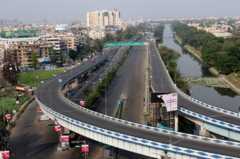

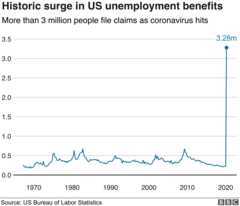

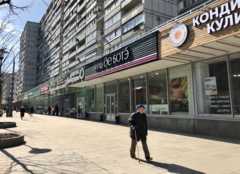

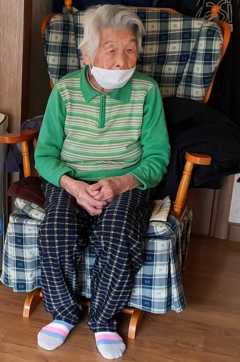

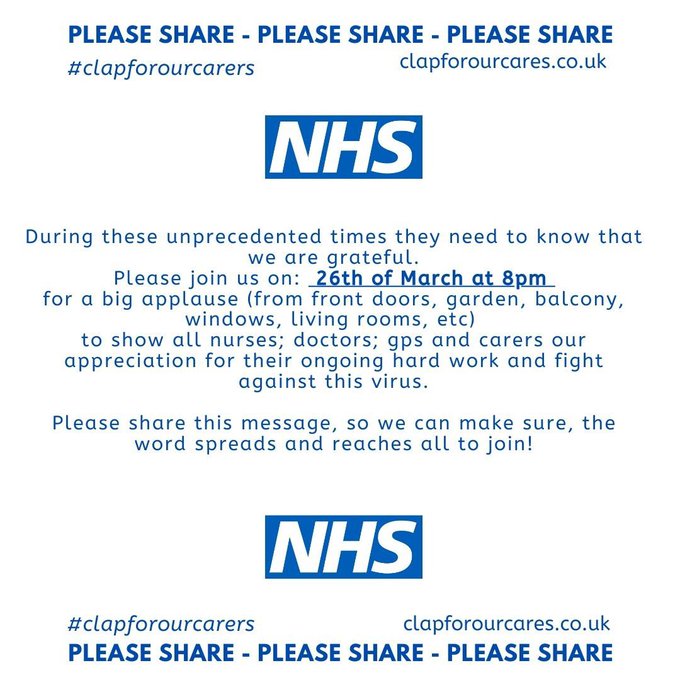
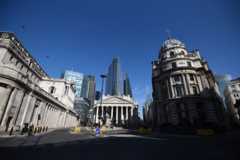
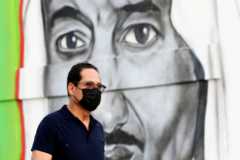


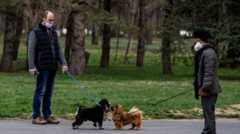

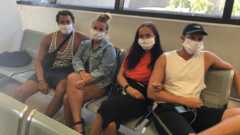
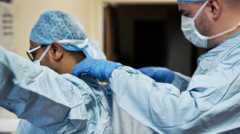
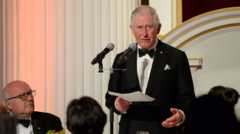

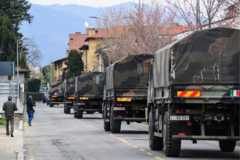
No comments:
Post a Comment